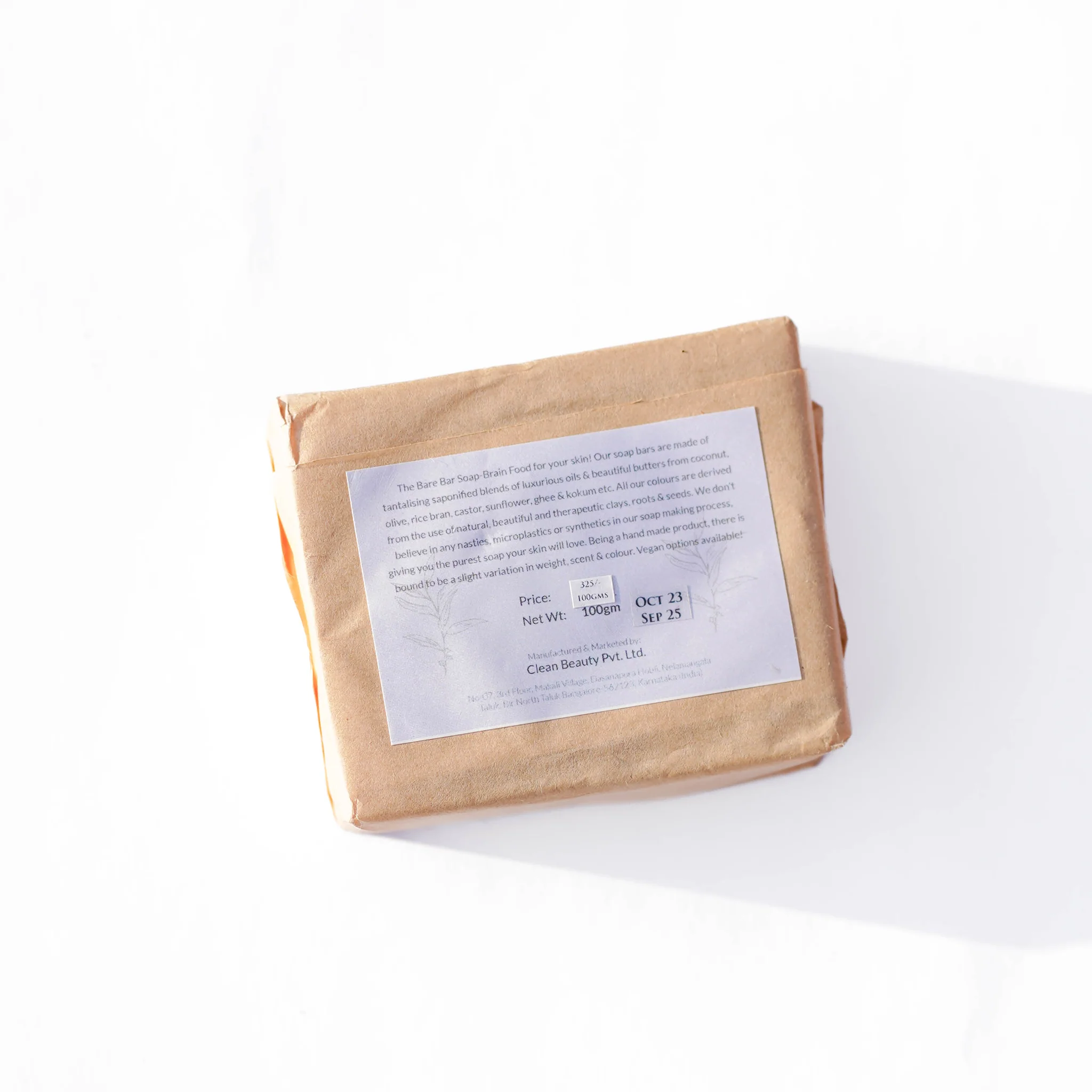Kashmiri Lavender Bar
₹325.0
The heavenly scent of our Lavender bar is popularly favored by all. Lavender is believed to calm your senses, help alleviate anxiety and stress, and also help promote a relaxing sleep. It is an excellent choice when it comes to healing skin conditions, burns, and cuts. Besides, Our Lavender bars are loaded with the healing benefits of Alkanet root. Alkanet or Ratanjyot is known to prevent infection, help reduce inflammation, heal burn scars, and clear skin. Do try these intoxicating and naturally beautiful Lavender bars for a calm and relaxing shower.
Made in India, with locally sourced ingredients.
Our soaps are all freshly made to order. Although you can start using them immediately, they will benefit greatly from a 2 week cure. Therefore, if possible, so start using after 2 weeks from delivery.
In addition, since we use no chemical hardeners, please use a very well-draining soap dish. Ensure your bars don’t sit in water, or they will melt faster.
Enjoy the beauty of our pure and natural handcrafted Bare Bars.
Keeping sustainability in mind, we use no plastic in our packaging. Our bars are wrapped simply in butter paper, and tied with a twine. No bubble wrap, cling wrap, plastic or anything that is not biodegradable.
Indulge in the luxurious artistry of handcrafted soap bars, crafted with love and natural ingredients.
You must be logged in to post a review.
Q & A
1. Natural Ingredients:
Kashmiri Lavender Bar soap is often made with natural and organic ingredients, such as lavender oil, which is sourced from the Kashmir region. Natural ingredients tend to have a lower environmental impact compared to synthetic chemicals. Scientific Explanation:- Biodegradability: Natural ingredients are more likely to be biodegradable, meaning they break down more easily in the environment and do not persist as pollutants.
- Reduced Chemical Use: The production of natural ingredients typically involves fewer harmful chemicals, reducing the potential for soil and water contamination.
2. Local Sourcing:
If the lavender is sourced locally from the Kashmir region, it reduces transportation emissions, contributing to a lower carbon footprint. Scientific Explanation:- Reduced Transportation Emissions: Local sourcing minimizes the distance ingredients travel, thereby reducing fossil fuel consumption and greenhouse gas emissions associated with transportation.
3. Sustainable Farming Practices:
Lavender farming in Kashmir often employs sustainable agricultural practices, such as organic farming, which avoids the use of synthetic pesticides and fertilizers. Scientific Explanation:- Organic Farming: Organic farming practices enhance soil health, increase biodiversity, and reduce water pollution. They also contribute to carbon sequestration, which helps mitigate climate change.
4. Minimal Packaging:
Sustainable products often use minimal and eco-friendly packaging, such as recyclable or biodegradable materials. Scientific Explanation:- Reduced Waste: Using minimal packaging reduces waste and the energy required to produce packaging materials.
- Eco-friendly Materials: Biodegradable and recyclable materials have a lower environmental impact compared to traditional plastics.
5. Energy-efficient Production:
Artisanal and small-scale production methods used in making natural soaps are often less energy-intensive than mass production. Scientific Explanation:- Lower Energy Consumption: Small-scale production uses less energy and often relies on renewable energy sources, reducing the overall carbon footprint.
Conclusion:
The Kashmiri Lavender Bar soap's sustainability and low carbon footprint are attributed to its use of natural ingredients, local sourcing, sustainable farming practices, minimal and eco-friendly packaging, and energy-efficient production methods. These factors collectively contribute to reducing the product's environmental impact.References:
- Environmental impact of cosmetic products: A comprehensive review. Journal of Cleaner Production.
- Supply chain sustainability: Benefits of local sourcing. Environmental Science & Technology.
- Organic farming's environmental benefits: A review. Renewable Agriculture and Food Systems.
- Sustainable packaging: Impacts on carbon footprint. Packaging Technology and Science.
- Artisanal versus industrial production methods: Energy consumption analysis. Energy and Environmental Science.
General Inquiries
There are no inquiries yet.





Reviews
There are no reviews yet.